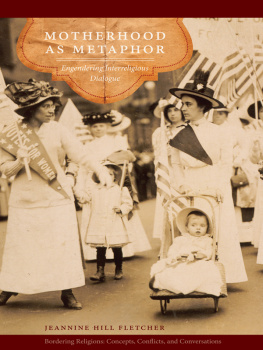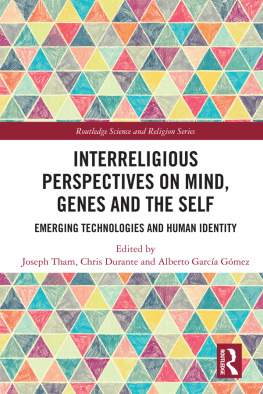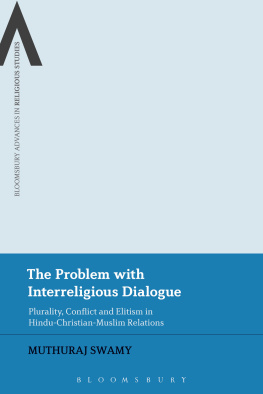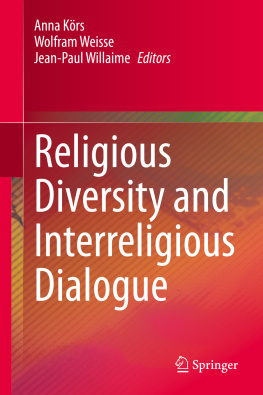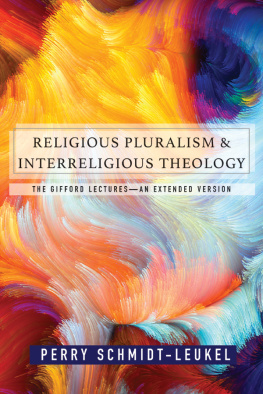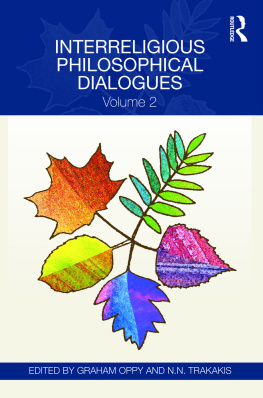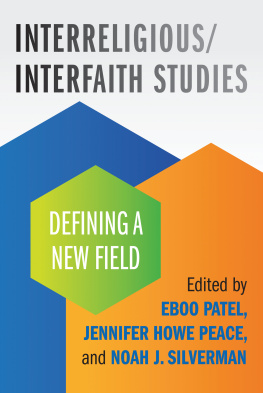Foreword
In recent years, in the education and training of Catholic and Islamic religion teachers at the University of Innsbruck we have devoted ourselves intensively to the fundamentals of interreligious religious education or the evidence-based analysis of interreligious educational processes. The insights we have so far gained from our practical experience show that the context of interreligious education and interreligious dialogue includes conflict potential. For a variety of reasons, even though the macrolevel dynamics of conflict are typically discussed in current research, rather than specific (inter)religious phenomena, conflict in the area of interreligious education is seldom thematised.
Two reasons for this tendency to ignore the potential for conflict appear to be especially relevant. On the one hand, there is something elusive about conflict. When a conflict begins, one can only guess at the risk involved, the outcome cannot be calculated, and the possibilities of controlling it are limited. These factors cause reservation, uncertainty and hesitancy to openly address conflict. But there is the fear of losing power. Empirical analyses show that implicit rules or normative ascriptions also play a role here, such as the notions of political correctness, various conflicts of interest, personal concepts, or political and social ideas. On the other hand, the reluctance to deal with conflicts in interreligious contexts also arises from the concern that these processes, which have taken a great deal of time and effort to develop, could be hampered by the thematisation of conflict. Failed interreligious initiatives often not only lead to failures in communication but also allow room for the latent suspicion to grow that religions cannot make any positive contribution to society because they are not capable of engaging in dialogue with each other. Even if these concerns are justified, the potential for conflict in the context of interreligious educational processes should not be blocked out if all sides are to benefit from these processes.
Given this background, exposing and analysing the conflict landscape in educational and interaction processes is urgently necessary on the one hand and yet tricky on the other: vulnerability and uncertainty often emerge, the concepts in these fields are questioned, the old patterns of action and communication are no longer self-evident, and there can be a feeling of helplessness. Nevertheless, we need to study conflicts in the context of education, especially interreligious education. The question whether we can take this risk of thematisation and processing of conflicts depends, however, above all on the subjective and collective valuation of conflicts: if, instead of seeing only the risky and possibly harmful side of conflict, we see it primarily as a field of experience that makes growth in learning and education possible, calmer and more risk-taking action will result. In particular, conflicts and the potential for conflict show that an intensive empirical study on this complex of themes constitutes the best basis for a sound understanding of the communication and conflict patterns of interreligious education, encounter, and dialogue.
Given this background, this volume is an important and necessary contribution to interreligious dialogue and to the development of interreligious educational processes. The respectful interreligious collaboration that continues to be experienced at the University of Innsbruck has encouraged us to research this important aspect in interreligious religious pedagogy and to make the results of this research available.
This study was first published in German in 2020 as Konflikte und Konfliktpotentiale in interreligisen Bildungsprozessen. Empirisch begleitete Grenzgnge zwischen Schule und Universitt by Kohlhammer in the series Studien zur Interreligisen Religionspdagogik. Because the scientific analysis of tensions in interreligious work has until now remained largely ignored, our research and insights about conflicts in interreligious educational processes in theory and praxis should also be made available to an international audience as well by means of its translation into English. The translation and the publication have been financed by the research funds of Zekirija Sejdini that were granted to him in his position as Professor of Islam in Contemporary Society at the University of Vienna.
In addition to our gratitude to de Gruyter, which has made the publication of this volume possible, we would also like to thank Julia Eitzinger and Petra Juen, who did important work in the analysis and evaluation of the empirical data, as well as Clemens Danzl, Aykut Gelengec, Marina Moosbrugger und Hayriye Gl Sahan for the transcription and conducting the empirical surveys. Special thanks to Henry Jansen, for his translation of this work. He also translated the German quotes by the interviewees and the direct quotes from academic and scientific sources into English. We would like to emphasise the work of our co-author, Jonas Kolb, who carefully oversaw the translation and publication of this book. Last, but not least, we would also like to thank the students, religions teachers, and course teachers whom we interviewed for their time and willingness to share insights into their interreligious praxis experiences.


